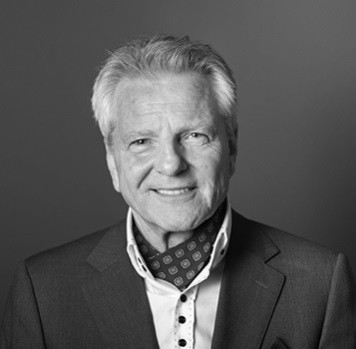In this interview, the founder and the current President of Business Angels of Slovenia talk about the state of the nascent Slovenian startup ecosystem and the need for cross-border investments.

President, Business Angels of Slovenia
Nina Dremelj is the President of Business Angels of Slovenia, based in Ljubljana. Business Angels of Slovenia counts around 60 members and has invested EUR 8 million in 41 startups. Nina is also a Board Member of the European Business Angel Network and CEO of Alita Capital, a pre-Seed fund.
Branko Drobnak is a serial entrepreneur who founded Business Angels of Slovenia in 2007.

Founder, Business Angels of Slovenia
How did you become interested in startup investing?
Branko: After becoming independent in 1991, Slovenia underwent a long period of privatization. Many businesspeople were part of this process and later consolidated industries. Later, some of them became ready to invest in new ideas. This is why I founded Business Angels of Slovenia in 2007 together with colleagues. We didn’t test the waters first, we just jumped right in. Many ideas that sounded good at the time turned out not to be that smart after all. Then, after the global financial crisis in 2009, people were very cautious, and it was a long dry period for angel investing. This gradually changed for the better a few years later. We started to establish a professional management team at the Business Angel Club and bring back members. I was lucky enough to bring Nina on board in 2016.
Nina: When I joined, our main task was establishing structures and finding good investment opportunities. I already had exposure to the startup world a decade ago, when a friend of mine was a founder. At that time, there was no knowledge of startup investing to speak of, and this has changed. Today our members are successful entrepreneurs who sold or partially exited their companies, with relevant experience and a hands-on approach. You don’t need to lecture them on why it makes sense to invest in startups, they understand the logic, and they provide valuable help and mentoring. We now also have younger people joining, and a few female investors.
What successful startups have you invested in?
Nina: My portfolio is quite young, but Hooray Studios is already doing very well. They have developed the technology to publish ultra-personalizable children’s books that are perfect gifts. The company is growing very fast, has achieved double-digit million revenues, and has established itself as a market leader on all continents.
Branko: I met the founders of the biotech Acies Bio at an event. The company develops new microbial products and processes. It has grown significantly to more than 120 employees, has filed more than a dozen patents, and raised a Series B financing round.

Invest in Startups
As one of Europe’s most active venture capital investors, we grant qualified private investors access to top-tier European startups. With investments starting at EUR/CHF 10’000, you can build your own tailored portfolio over time and diversify across stages and sectors.
In more general terms, what kinds of startups are the Business Angels of Slovenia looking at?
Nina: As everywhere else in Europe, B2B software startups make up the majority of startups here that seem to be investable. What we would like to see more of are deep tech startups. There are initiatives from the state to support spin-offs from universities, but this is only slowly getting started.
Branko: Many scientists are still afraid to leave academia. They fear that they can’t come back if they try to build a startup and fail. It will take time to change this mindset.
To help startups on their way, you have established the Startup Clinic. How does it work?
Nina: We decided together that we need something to help startups. We set up the Startup Clinic as a network of experts in 2016. It’s nice to have presentations and seminars about general topics but they don’t solve the specific problems a startup has at a given moment. This is why we assembled a network of advisors who are specialized in different fields such as taxes, sales, marketing, human resources, intellectual property et cetera. Many startups that reach out to us are at a stage where they’re not investable. We want to give them access to the right people who understand startups and help them fix their problems so that they can become investable later.
What’s the state of venture capital investors in Slovenia?
Nina: There aren’t many VCs, which means that successful later-stage startups are primarily financed by foreign investors. We do have Slovenian VCs like Silicon Gardens, which invests up to EUR 300k in ICT startups, Suricate Ventures, a group of private investors, and the recently established pre-Seed fund daFUND.
Branko: It is worth mentioning that a lot of investment in startups in Slovenia is done through familial relationships and is never officially counted as venture capital investments. What we lack is also the preferential tax treatment of startup investments that countries around us have.
Nina: Slovenia is a small country. We should get rid of the fear of doing cross-border investments. In general, this approach is accepted. We have selectively established partnerships, for example with Depo Ventures in the Czech Republic, and EstBAN in Estonia. If you have good partners you can trust, and co-investment with them, you simply get more opportunities to diversify.
Written by
WITH US, YOU CANCO-INVEST IN DEEP TECH STARTUPS

Verve's investor network
With annual investments of EUR 60-70 mio, we belong to the top 10% most active startup investors in Europe. We therefore get you into competitive financing rounds alongside other world-class venture capital funds.
We empower you to build your individual portfolio.
More News
03.11.2023
The neuroscience of financial decision-making
Assistant Professor Ewa Lombard explains what happens in our brains when we take financial risks and what the biological differences between men and women mean when it comes to investing.
03.10.2023
“A successful entrepreneur is not automatically a good investor“
Tiina Laisi-Puheloinen took over the CEO position of the Finnish Business Angel Network earlier this year. In our interview, she talks about role models, growing the organization, and getting more people to invest in startups.
27.09.2023
The difference between business angel clubs and Verve Ventures
Investing in startups is a risky affair. If you want to start, it’s best to learn from people with experience. In this article, we highlight the difference between local business angel clubs and Verve Ventures’ digital model.
Startups,Innovation andVenture Capital
Sign up to receive our weekly newsletter and learn about investing in technologies that are changing the world.




